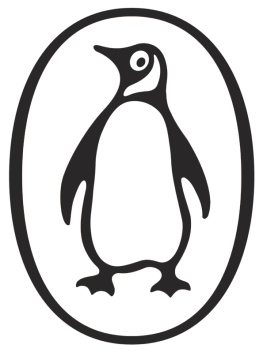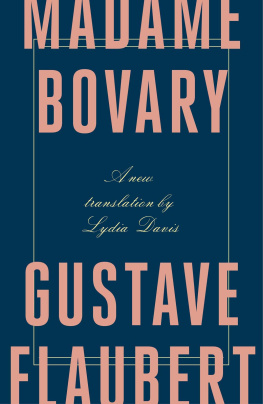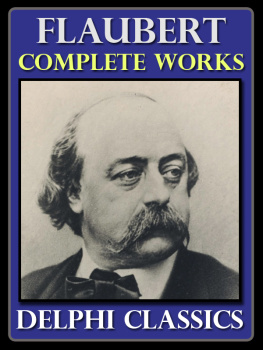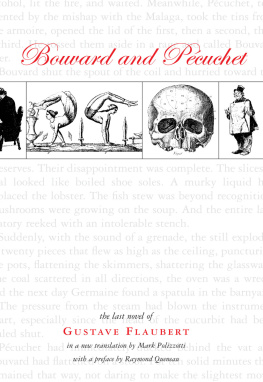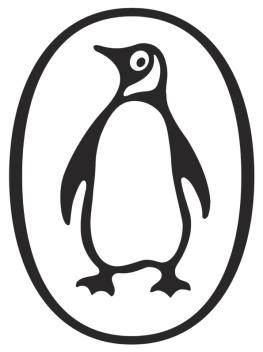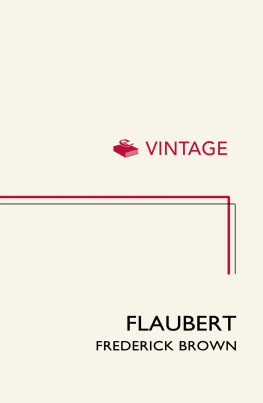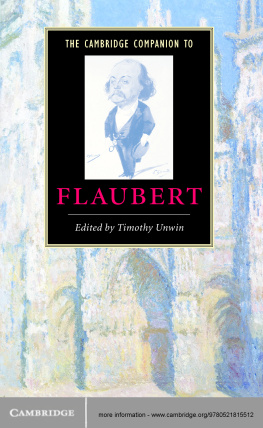
SALAMMB
GUSTAVE FLAUBERT , the younger son of a provincial doctor, was born in the town of Rouen in 1821. While still a schoolboy, full of romantic scorn for the bourgeois world, he professed himself disgusted with life. At the age of eighteen he was sent to study law in Paris, but had no regrets when a mysterious nervous ailment interrupted this career after only three years. Flaubert retired to live with his widowed mother in the family home at Croisset, on the banks of the river Seine, near Rouen. Supported by a private income, he devoted himself to his writing.
In his early work, particularly The Temptation of Saint Antony, he gave free rein to his flamboyant imagination, but on the advice of his friends he subsequently disciplined this romantic exuberance in an effort to achieve artistic objectivity and a harmonious prose style. This perfectionism cost him enormous toil and brought him only limited success in his own lifetime. After the publication of Madame Bovary in 1857 he was prosecuted for offending public morals; his exotic novel, Salammb (1862), was criticized for its encrustations of archaeological detail; Sentimental Education (1869), intended as the moral history of his generation, was largely misunderstood by the critics; and the political play The Candidate (1874) was a disastrous failure. Only Three Tales (1877) was an unqualified success, but it appeared when Flauberts spirits, health and finances were at their lowest ebb.
After his death in 1880 Flauberts fame and reputation grew steadily, strengthened by the publication of his unfinished comic masterpiece Bouvard and Pcuchet (1881) and the many remarkable volumes of his Correspondence.
DR A. J. KRAILSHEIMER was born in 1921 and was Tutor in French at Christ Church, Oxford, from 1957 until his retirement in 1988. His publications are Studies in Self-Interest (1963), Rabelais and the Franciscans (1965), Three Conteurs of the Sixteenth Century (1966), Rabelais (1967), A. J. de Ranc, Abbot of La Trappe (1974), Pascal (1980), Conversion (1980), Letters of A. J. de Ranc (1984), Ranc and the Trappist Legacy (1985), Correspondance de Ranc (1991), Florilge de Lettres de Ranc (1999) and A. J. de Ranc, abb de la Trappe (revised French edition of the 1974 book for the Tercentenary in 2000). He has also translated Flauberts Three Tales (1981), Balzacs PreGoriot (1991) and Hugos Notre Dame de Paris (1993) for Oxford Worlds Classics, and Flauberts Bouvard and Pcuchet and Pascals The Provincial Letters and Penses for the Penguin Classics.
Gustave Flaubert
SALAMMBO
TRANSLATED WITH AN INTRODUCTION BY
A. J. KRAILSHEIMER
PENGUIN BOOKS
PENGUIN BOOKS
Published by the Penguin Group
Penguin Books Ltd, 80 Strand, London WC2R 0RL , England
Penguin Putnam Inc., 375 Hudson Street, New York, New York 10014, USA
Penguin Books Australia Ltd, 250 Camberwell Road, Camberwell, Victoria 3124, Australia
Penguin Books Canada Ltd, 10 Alcorn Avenue, Toronto, Ontario, Canada M4V 3B2
Penguin Books India (P) Ltd, 11 Community Centre, Panchsheel Park, New Delhi 110 017, India
Penguin Books (NZ) Ltd, Cnr Rosedale and Airborne Roads, Albany, Auckland, New Zealand
Penguin Books (South Africa) (Pty) Ltd, 24 Sturdee Avenue, Rosebank 2196, South Africa
Penguin Books Ltd, Registered Offices: 80 Strand, London WC2R 0RL , England
www.penguin.com
This translation first published 1977
23
Copyright A. J. Karilsheimer, 1977
All rights reserved
Except in the United States of America, this book is sold subject to the condition that it shall not, by way of trade or otherwise, be lent, re-sold, hired out, or otherwise circulated without the publishers prior consent in any form of binding or cover other than that in which it is published and without a similar condition including this condition being imposed on the subsequent purchaser
ISBN: 9781101492543
Contents
Introduction
WHILE no one but Flaubert could have written Salammbo, it shows certain sides of his character and art which, at least on first acquaintance, do not fit in very well with his other great novels. For that matter it has few analogues in French literature at all, and much the best way to approach the book is on its own terms, as an attempt to do something quite specific and even unique. When Flaubert decided to do something, he would persevere in the face of adverse criticism (as the reiterated attempts at St Antony show) and Salammbo very clearly represents something he wanted to do, executed in the way he wanted to do it.
His biography and the genesis of the novel are helpful to an understanding of what he was trying to do and why. In November 1849, shortly after completing the first abortive draft of St Antony, Flaubert set off for the Middle East with his friend Maxime du Camp. They visited Egypt, Syria, Jerusalem, Turkey, and Greece before returning, via Italy, in February 1851. Letters and other sources show how fascinated Flaubert was, and remained, with all he had seen of life in these places. People, landscapes, cities, everything made the most profound impression on him, and he would have been most unusual if he had not sooner or later exploited this store of raw material. The years following his return were largely occupied with writing Madame Bovary (whose success was briefly marred by a state prosecution for alleged indecency, which however he survived with a triumphant acquittal) but by early 1857 he was already planning a new novel, to be about Carthage. At first he referred to it simply as Carthage, and by July 1857 claimed to have read about a hundred books in preparation for the work. A few months later, having by now decided to introduce a heroine as focus and title for the book, he finally settled on Salammbo.
He went on working hard at the novel until April 1858, when he felt obliged to go back to North Africa, partly for specific topographical research and partly to steep himself again in the atmosphere which had so powerfully affected him on his previous journey to Egypt and the Levant. Accordingly he crossed to Philippeville (in Eastern Algeria) and made his way to Tunis, seeing, among other places, Constantine (surely one of the most dramatic sites in North Africa) and Le Kef (the Sicca of antiquity). For some reason he made only four trips to the site of Carthage itself but, perhaps more profitably, made friends in Tunis with several of the archaeologists working on the ruins, including the celebrated Pre Bourgade. By the time he returned to France after some six weeks away his head was full of fresh facts and images, and he characteristically discarded all he had so far written as worthless. He threw himself into the labour of composition with his usual frenzy, devoured still more books (two hundred in all, according to him) and by May 1861 felt able to read the chapters so far completed to the Goncourts, among others. Their journal records their deep disappointment, especially with the style of the book, but they did not openly try to dissuade him from publication. It was another year before he had completed the text, on 30 June 1862, and on 24 November it was published by the same M. Lvy who had published Madame Bovary. He asked for 30,000 francs and was paid 10,000; that same year Victor Hugo earned 300,000 francs for Les Misrables, admittedly a much longer book by a much more famous author. If Flaubert had to capitulate on the question of payment he was intransigent in his refusal to allow his book to be illustrated, rightly objecting that this would destroy its imaginative impact.
Next page
